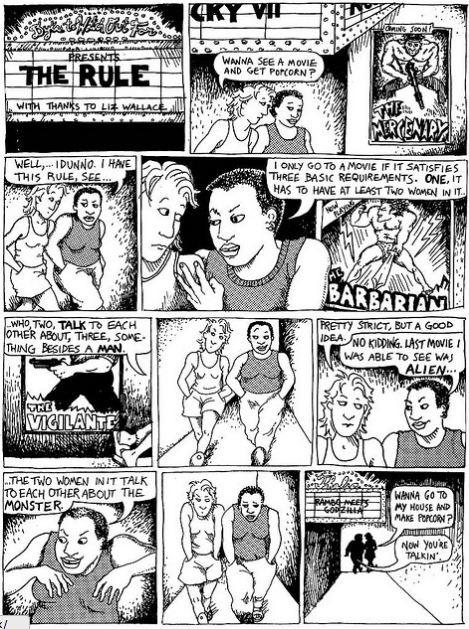It seems like a simple enough premise: find a movie that has two named female characters who talk to each other about something other than a man.
But put it into practice and a lot of films don’t measure up.
That’s the idea that Alison Bechdel, author of such works as Fun Home, Are You My Mother? and the comic strip Dykes to Watch Out For posited in a comic strip in 1985. Since then, the concept has been known as the Bechdel test. (To be fair, however, Bechdel makes note that the concept is one she had heard from a friend, Liz Wallace. Wallace is thanked in the strip below.)

It was recently announced that theatres in Sweden will now advise moviegoers if the films they are screening pass the Bechdel test. An interview posted by The Canadian Press (and later posted by the CBC) with Ellen Tejle, the director of a theatre in Stockholm, addresses the reasons behind the decision:
“beliefs about women’s roles in society are influenced by the fact that movie watchers rarely see ‘a female superhero or a female professor or person who makes it through exciting challenges and masters them,’ says Telje, noting that the rating doesn’t say anything about the quality of the film. ‘The goal is to see more female stories and perspectives on cinema screens.’”
As to whether informing viewers about this rating will change their habits has yet to be seen. Even though the Bechdel test may not be a perfect way to assess whether or not a film presents a valid female perspective, it does make viewers think about how, when and where women are viewed and portrayed in film and pop culture in general. And that’s a very good thing indeed.

 Why you can trust Xtra
Why you can trust Xtra


